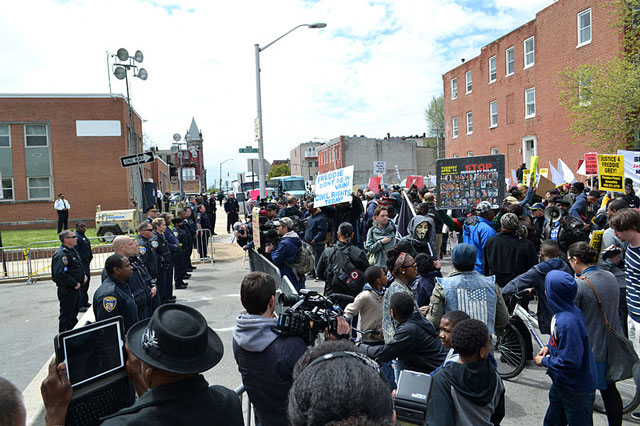The riots in Baltimore bring up a lot of issues related to class, race, violence, and societal problems.
I believe that all conflict is sacred ground for learning—and no one teaches us more than our opponents.
As a former social worker in the juvenile justice system, I empathize a lot with the rioters and inner-city law enforcement. What can they learn from each other?
If a rioter could share what’s in his heart to a cop, what would he say?
I think he would say:
“I feel intimidated by you. I feel scared. I want respect from you, but instead I feel degraded by you and what you do to my people. So I get angry and I lash out in violence.”
If a cop could share what’s in his heart to a rioter, what would he say?
I think he would say:
“I feel intimidated by you. I feel scared. I want respect from you, but instead I feel degraded by you and what you do to my people. So I get angry and I lash out in violence.”
Although inner-city minorities deserve respect, they don’t always get it. Especially when they are breaking the law. Although cops deserve respect, they don’t always get it, especially if they are confronting people who are breaking the law.
If we demand respect in order to give it, we may rarely be respectful.
Then we suffer as a result, because our attitude begets the same attitude from others.
It’s best to give respect even if someone will not reciprocate. Although it is counter-intuitive and difficult to do in the face of degradation, unconditional respect is the only way to break the cycle.
Inner-city people feel scared of cops and with good reason. They, or someone they know, have been mistreated by them. But when inner-city people act on the fear with disrespect and violence, that is exactly what they get back.
Cops are afraid of inner-city criminals—and pretty much anyone on the street—and for good reason. They, or someone they know, have been been surprised by someone with a knife or a gun. But when they act on their fear with disrespect and violence, it’s all they get back in return.
These are complicated issues and I’m not supposing to be able to solve them.
But the example of cops and the people they interact with in dangerous neighborhoods helps us look at ourselves and the way we interact with our opponents regarding fear and respect. The roots of violence always grow from fear.
When we recognize our power to intimidate or befriend in the face of fear, we will overcome the patterns of violent thoughts, words, and actions. When we can see past the burning eyes of aggression into the watery fear of a crying child, we will embrace our enemy.
Our opponent is merely a reflection. We must change ourselves first in order to see what we want to see: the benevolent face of an ally.
Relephant Read:
Baltimore Riots: Two Compelling Perspectives on Non-Violence.
Author: Sean Morgan
Assistant Editor: Hilda Carroll / Editor: Catherine Monkman
Photo via Wikimedia







Read 1 comment and reply